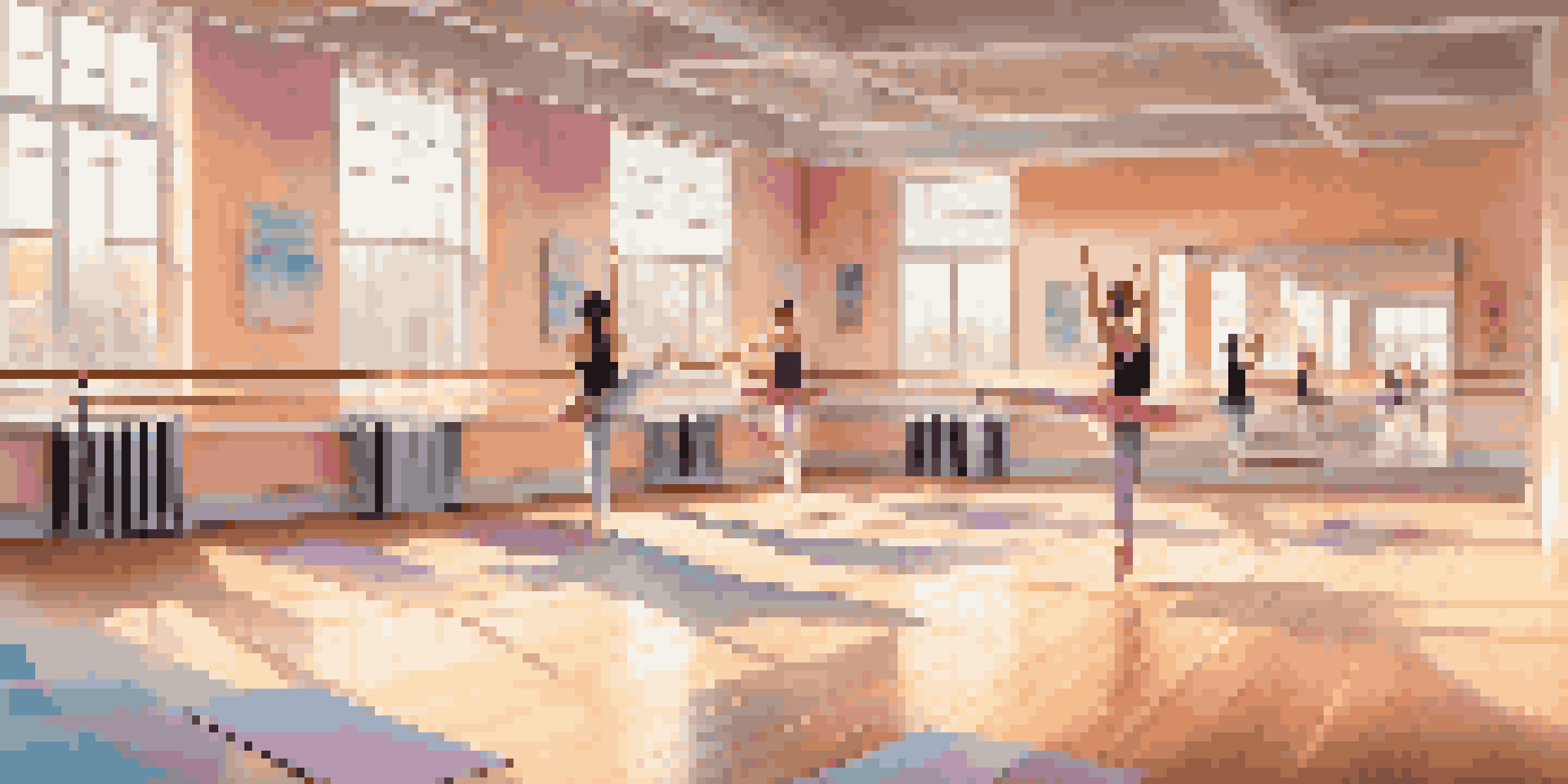How Zoning Laws Affect Dance Studio Locations and Operations

Understanding Zoning Laws and Their Purpose
Zoning laws are regulations that govern land use in specific areas. They dictate what types of buildings and businesses can operate in certain zones, thereby shaping the character of neighborhoods. For dance studios, understanding these laws is crucial to ensure compliance and avoid costly fines or relocations.
The Role of Local Government in Zoning
Local governments play a significant role in creating and enforcing zoning laws. They consider factors like community needs, environmental impact, and economic development when drafting these regulations. This means that dance studios must stay informed about local policies and any changes that may affect their operations.
Zoning Laws Shape Studio Operations
Understanding zoning laws is essential for dance studios to ensure compliance and avoid potential fines.
Commercial vs. Residential Zoning for Dance Studios
Dance studios often thrive in commercial zones where foot traffic and visibility are higher. However, operating in residential areas may present challenges, such as noise complaints from neighbors. Understanding the distinction between these zones helps studio owners identify suitable locations that align with their business model and growth plans.
Parking Requirements and Their Influence
Zoning laws often include stipulations about parking requirements for businesses. For dance studios, ample parking is essential for attracting students and parents, especially during busy class times. If a studio is located in an area with insufficient parking, it could deter potential clients and impact overall attendance.
Importance of Parking for Studios
Ample parking is crucial for dance studios, impacting student attendance and overall business success.
Permitting and Licensing for Dance Studios
Securing the necessary permits and licenses is a key aspect of operating a dance studio. Zoning laws may require specific permits for conducting classes or hosting events, which can vary by location. Navigating this process can be daunting, but understanding the requirements can save time and resources in the long run.
The Impact of Zoning Changes on Existing Studios
When local governments revise zoning laws, existing dance studios may be affected significantly. Changes can lead to new restrictions, requiring studios to adapt their operations or even relocate. Keeping an eye on zoning changes is essential for studio owners to ensure their business remains viable and compliant.
Engage with Community for Support
Building relationships with the community and local government can help dance studios advocate for favorable zoning regulations.
Community Engagement and Zoning Advocacy
Engaging with the community and local government can help dance studios advocate for favorable zoning laws. Building relationships with neighbors and municipal leaders can create a supportive environment for the arts. This proactive approach can also help studios influence decisions that directly affect their operations and growth.
Future Trends in Zoning Laws and Dance Studios
As cities evolve, so do zoning laws, often reflecting changing community values. There is a growing trend toward more flexible zoning regulations to accommodate creative businesses like dance studios. Staying informed about these trends can help studio owners adapt and position themselves advantageously in the marketplace.